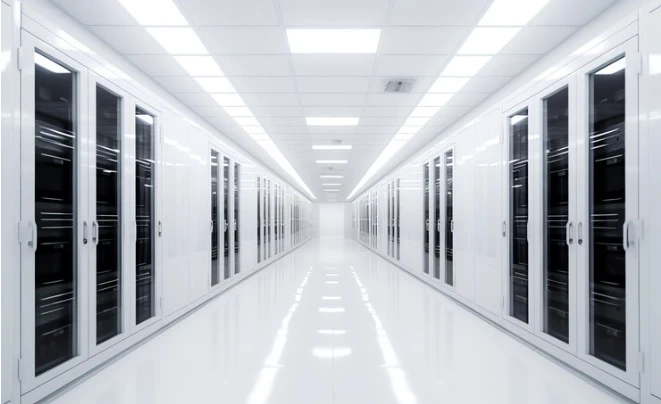Cloud platforms promise convenience, but for businesses and serious home users, nothing tops the control and efficiency of Network Attached Storage (NAS). As data volumes explode and digital collaboration becomes a daily reality, the case for NAS grows stronger every year. This post explores why Network Attached Storage is fast becoming the backbone of modern digital organization—with a focus on flexibility, scalability, and future-proofing through enterprise NAS solutions.
The Digital Organization Challenge
Digital information drives every aspect of work and life. Documents, photos, videos, design files, and archives pile up at a dizzying rate. Most people start by juggling USB drives and hard disks, but that quickly leads to lost time, version confusion, and security risks. Businesses face steeper hurdles, needing robust, accessible, and secure data storage that evolves with them.
Enter Network Attached Storage.
What is Network Attached Storage (NAS)?
Network Attached Storage is a smart storage device connected to your home or business network. Unlike old-school external drives, a Network attached storage isn’t tied to one computer. Instead, it acts as a dedicated file server, making it easy for multiple users and devices to store, access, and share files—from anywhere on the network.
How Does NAS Work?
- Centralized Storage: NAS connects directly to your router or network switch. Users access it through standard network connections (Ethernet/Wi-Fi), with no need to “plug in” physically.
- Data Sharing: Multiple people can work on the same set of files, collaborate in real time, and back up important info automatically.
- Remote Access: Many NAS systems offer secure, browser-based portals or apps, so you can reach your files on the go.
The Surging Demand for Network Attached Storage
The growth in digital storage needs isn’t slowing. According to IDC, global data volumes are expected to hit 175 zettabytes by 2025. Both home users and enterprises want solutions that are scalable, secure, and easy to use. Network Attached Storage is leading the way for several reasons:
1. Centralized and Organised Data
With NAS, scattered files are a thing of the past. Imagine everyone in your business (or household) saving and accessing documents from one organized place. Version control, collaborative editing, and search all become easier.
Example:
Marketing teams can access the latest brand assets without sifting through email attachments. Home users can back up family photos from multiple phones, all in one location.
2. Scalability Without Hassle
Running out of space? Adding drives to many NAS boxes is as simple as sliding in a new hard disk. Enterprise NAS solutions offer modular expansion—with racks, shelves, or whole new nodes that integrate seamlessly.
Example:
A small design agency might start with 4TB space but can scale up to 40TB (or more) as project files balloon, all without replacing the original device.
3. Enhanced Security and Data Protection
Cybersecurity is a top concern. NAS systems fight back with:
- RAID configurations for redundancy (your data survives even if a drive fails)
- Automatic backups and snapshots
- Advanced user/access controls
- Encryption to keep data safe from prying eyes
Enterprise NAS systems may even offer integration with existing authentication tools like Active Directory for maximum control.
4. Cost-Effective Storage
Cloud storage is attractive…but monthly or per-user fees can quickly add up for growing teams. With a NAS, you pay for the hardware upfront and avoid recurring costs. Plus, you control your upgrade schedule.
Example:
For SMBs, enterprise NAS can be significantly cheaper over 3-5 years compared to per-seat cloud licensing, especially as datasets grow.
5. Speed and Local Performance
Uploading and downloading large files to the cloud can be slow and bandwidth-dependent. NAS delivers ultra-fast transfer speeds on the local network, ideal for:
- Video editors working with massive 4K files
- Architects handling complex CAD models
- Daily office work with large shared documents
Many enterprise NAS devices now offer SSD caching, multi-gigabit ethernet, and even direct high-speed expansion for ultra-demanding tasks.
6. Versatility Through Apps and Integrations
Modern NAS systems are more than dumb disks:
- Run applications: Host virtual machines, manage surveillance footage, stream movies and music, or act as a private cloud.
- Integrate with workflows: Sync with cloud platforms (like Dropbox, Google Drive), automate backups, or manage versioned archives.
- Customizable access: Granular permissions, time-limited links, and remote file sharing.
The result? NAS works with your business—not the other way around.
Enterprise NAS Takes It to the Next Level
For larger organizations or “prosumer” users, enterprise NAS solutions introduce even greater power:
Built for Business-Grade Demands
- High Availability: Dual controllers, multiple power supplies, and failover features keep your data online even during maintenance or failures.
- Scalable to Petabytes: Multi-bay, rackmount NAS systems scale to meet the needs of growing companies.
- Performance Tuning: Tiered storage, SSD caching, and support for high-speed networking like 10/25/40GbE.
- Compliance & Security: Audit logging, encrypted backups, and detailed access reports help meet GDPR, HIPAA, or other regulatory requirements.
Example Use Cases
- Healthcare: Secure storage for large numbers of patient records and high-resolution scans.
- Media Production: Video teams editing straight from networked drives, eliminating file transfer delays.
- Education: Universities serving digital resources to thousands of students and staff.
Is Network Attached Storage Right for You?
Whether you’re managing a creative team, running a tech startup, or organizing your personal digital life, the benefits of NAS are clear:
- For Small Businesses: NAS provides reliable, scalable, and secure file storage that grows with you.
- For Large Enterprises: Enterprise NAS solutions match the flexibility and power of cloud resources, while keeping you in control.
- For Home Users: Organize backups, stream media, and share files across all your devices.
Signs you may need NAS now:
- Regularly email files to colleagues or yourself
- Struggle with different versions of documents
- Worry about data security or ransomware
- Rely on slow cloud uploads for large files
- Want 24/7 access to files from anywhere
Taking Control of Your Digital Future
The amount of digital data each person and business produces is only set to increase. The need for an organized, secure, and accessible storage solution is more critical than ever.
Network Attached Storage isn’t just a tool; it’s the foundation of future-proof digital organization. With features that match (or surpass) public cloud solutions, and the flexibility to adapt as your needs evolve, NAS deserves a permanent place in your digital strategy.
Next Steps:
- Audit your current storage risks and growth needs
- Explore NAS options that suit your scale and access habits
- For growing teams and demanding workloads, consider enterprise NAS with future scalability and compliance in mind
Invest time exploring your options now and benefit from seamless, safe, and efficient storage for years to come.



